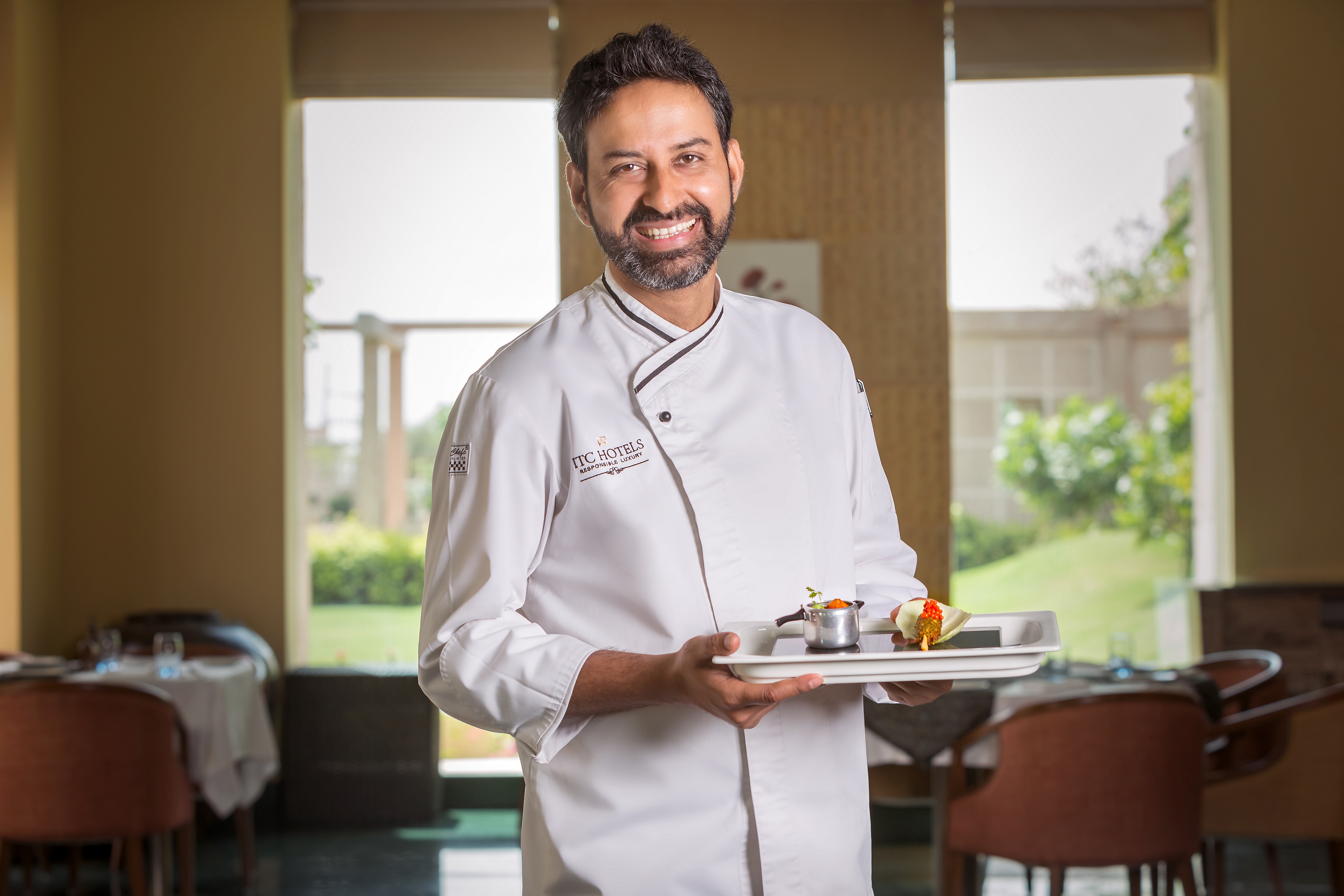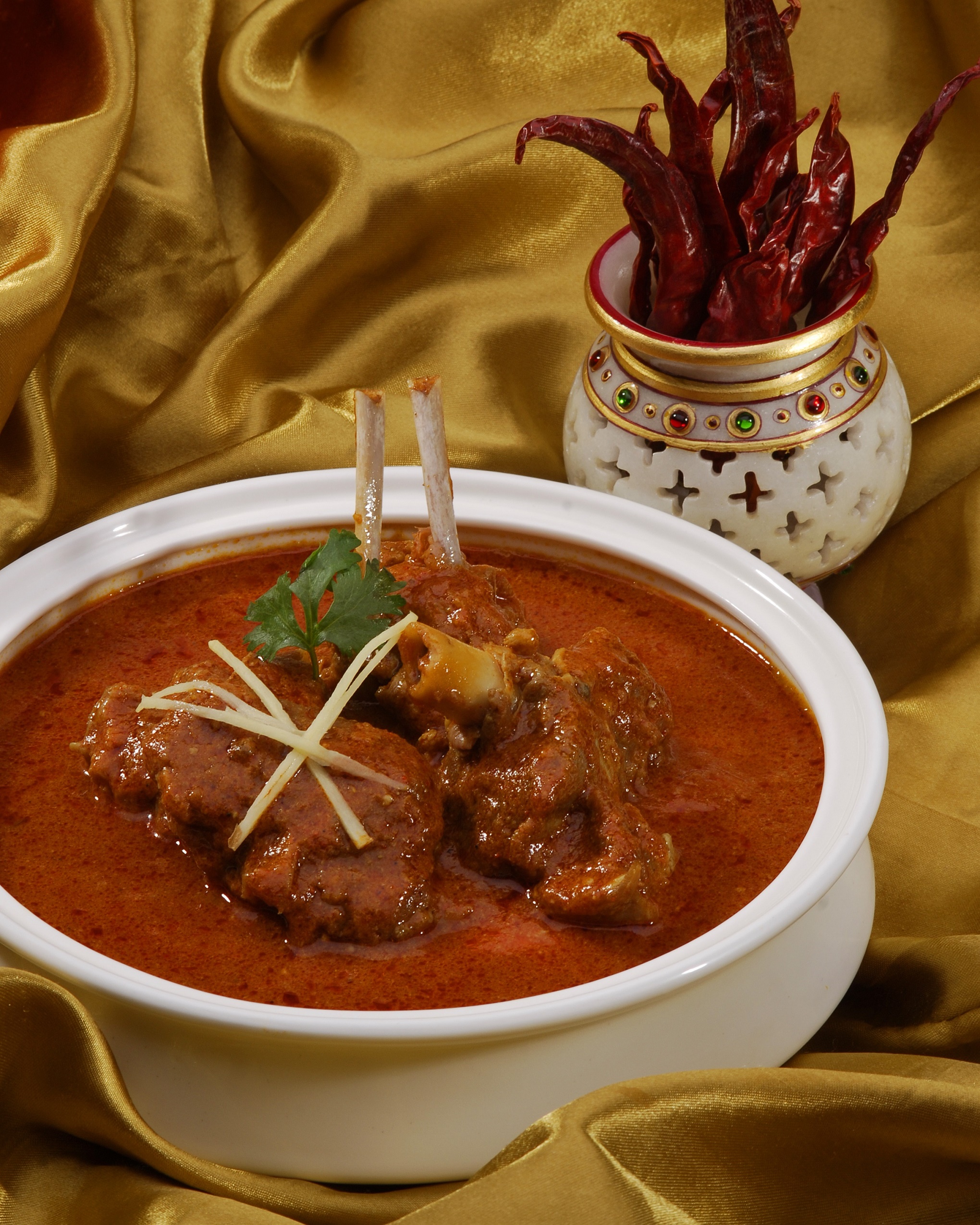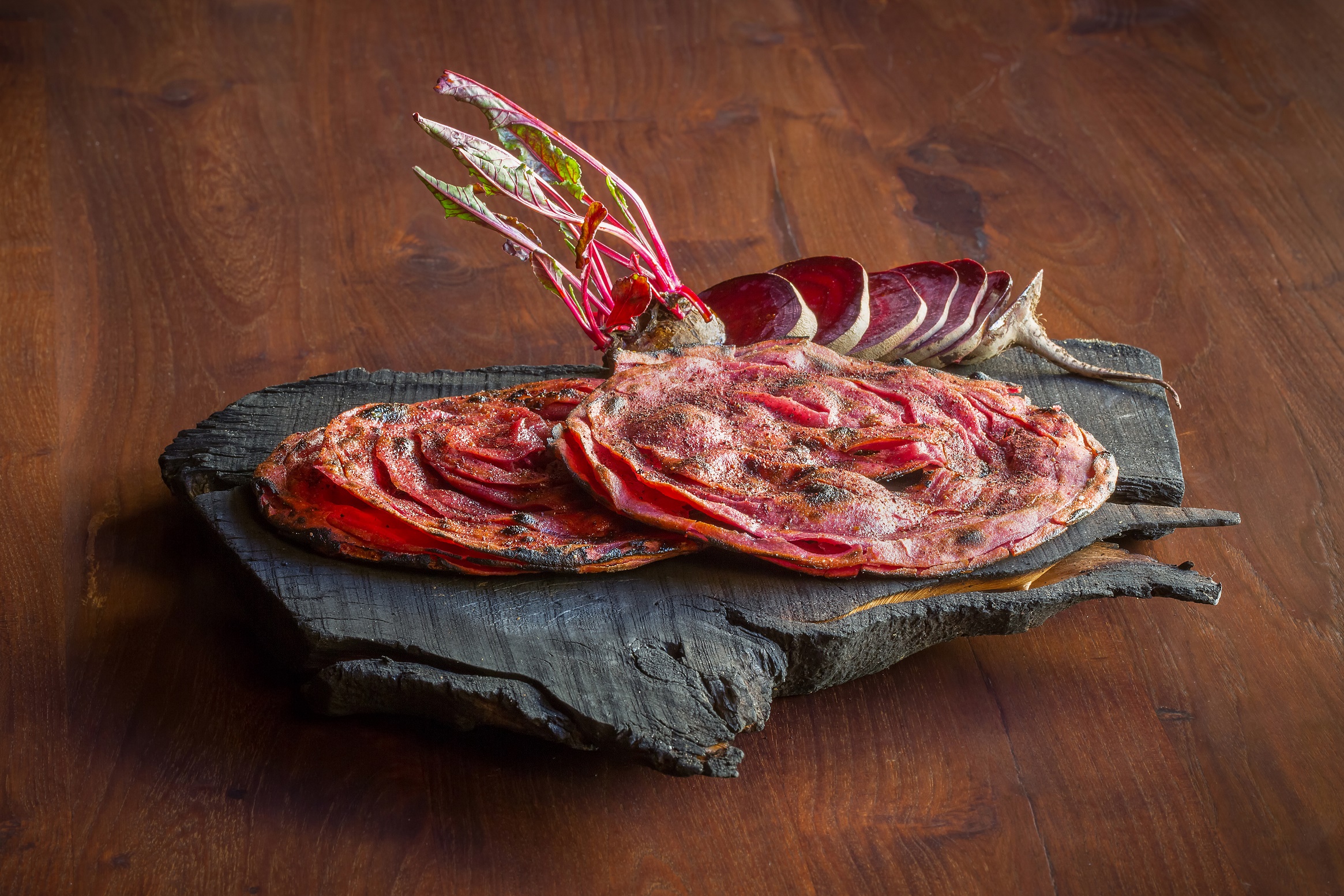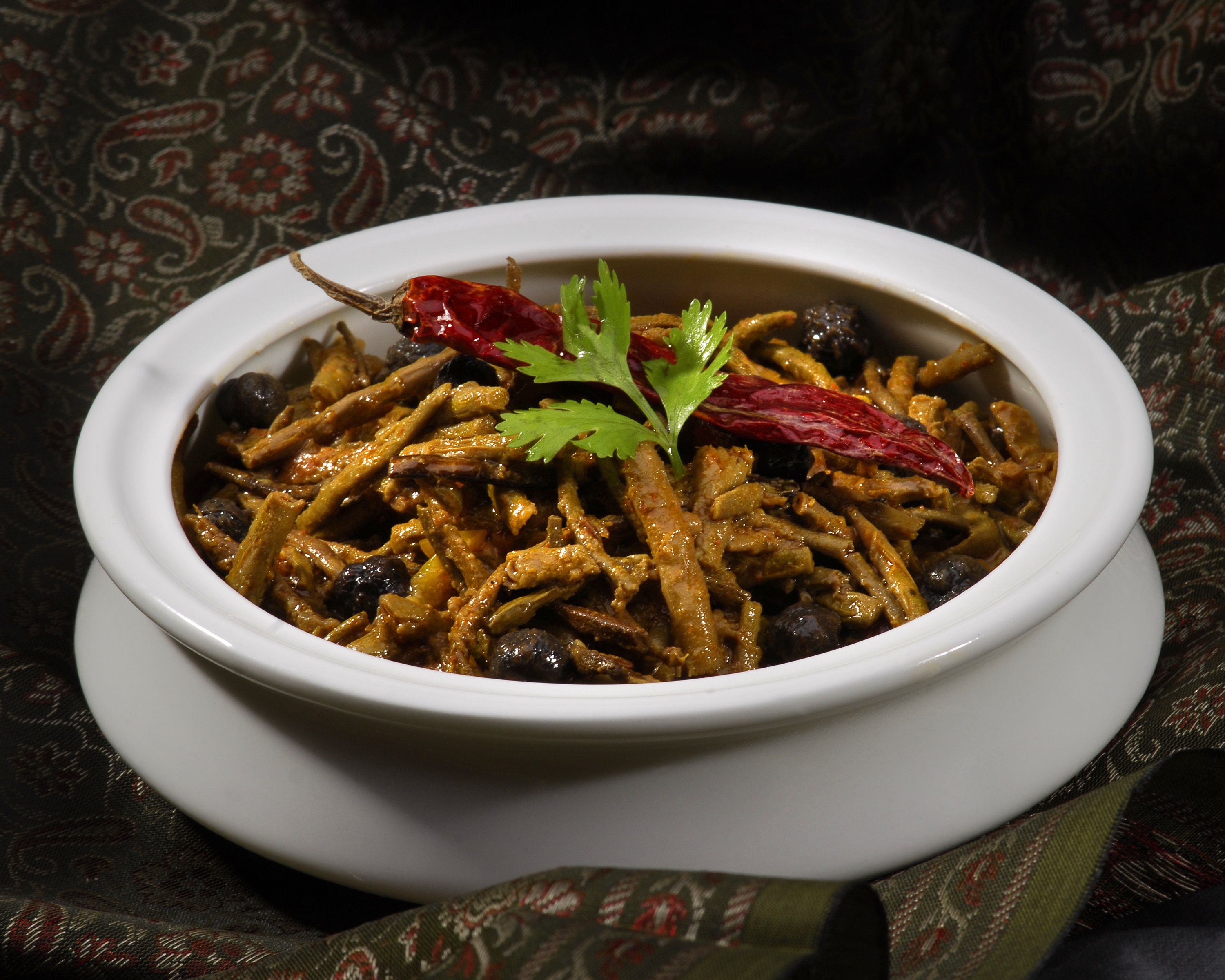

0


0

INTERVIEW
By Bindu Gopal Rao
5 August, 2019

 Akshraj Jodha, Executive Chef, ITC Windsor, Bengaluru
Akheraj Deolia Cuisine
Akheraj Deolia lies between the borders of Marwar and Mewar hence the cuisine has been influenced by both the regions which includes use of makki, bajra, jo, chana, moong etc. Few of the signature dishes in this cuisine include Pithod Methi Dana, Ker Sangri, Hara tamater laungi, Makka Kheech, Akkha Khargosh and Achari bater. The other influences were the different marriage alliances which changed the repertoire of the food cooked in the royal houses. “For instance, my grandmother was from Gujarat, therefore, some of the food cooked is a little sweet in nature.” Being the 14th descendant of Rao Akheraj who founded Akheraj Deolia he knows he has a responsibility to maintain the tradition. “I am a storyteller and well versed with my history and so is my family. We still follow the practices of worshipping Devi Annapurna first thing when we reach home. The old ladies working for us from the village follow the instructions as per my mother while cooking traditional food. All the festivals are worshipped with traditional prasad and food for the deity.”
Akshraj Jodha, Executive Chef, ITC Windsor, Bengaluru
Akheraj Deolia Cuisine
Akheraj Deolia lies between the borders of Marwar and Mewar hence the cuisine has been influenced by both the regions which includes use of makki, bajra, jo, chana, moong etc. Few of the signature dishes in this cuisine include Pithod Methi Dana, Ker Sangri, Hara tamater laungi, Makka Kheech, Akkha Khargosh and Achari bater. The other influences were the different marriage alliances which changed the repertoire of the food cooked in the royal houses. “For instance, my grandmother was from Gujarat, therefore, some of the food cooked is a little sweet in nature.” Being the 14th descendant of Rao Akheraj who founded Akheraj Deolia he knows he has a responsibility to maintain the tradition. “I am a storyteller and well versed with my history and so is my family. We still follow the practices of worshipping Devi Annapurna first thing when we reach home. The old ladies working for us from the village follow the instructions as per my mother while cooking traditional food. All the festivals are worshipped with traditional prasad and food for the deity.”
 LAAL MAANS
LAAL MAANS
 BEETROOT AJWAIN PARANTHA
BEETROOT AJWAIN PARANTHA
 KER SANGRI
Food Talk
With a wave of healthy eating that is taking center stage he admits that the regional food of India has always been healthy with the use of locally sourced ingredients. “At villages, the use of cold-pressed oil like mustard and sesame in winters is predominant. Most of the houses have cattle so people use desi ghee and milk produced at home. Lots of grains are used in the cuisine specially Millet or Bajra, which is now coined as superfood even though at our homes we been cooking them often and from a long time. The food hence is healthy, our lifestyles have changed.” Chef also shares an interesting anecdote when he was posted at ITC Rajputana where His Holiness Dalai Lama was to pay a visit. “I was given the task to make a menu for him. So as per the instructions, I made an elaborate vegetarian menu for His Holiness. When he arrived, he called for the Chef to discuss his menu. When I took him through the menu and my suggestions, he looked at me and asked me where the chicken dishes were. I was taken aback, he then told me that he consumes non-vegetarian food as the monks always go door to door for food and whatever is being offered to them, they consume.” Incidentally one of the toughest meals he cooked was at Shangri La, Kuala Lampur where the Sultan of Brunei used to stay for a month during Ramadan. “His team used to order all the Indian dishes from the menu every day for him and no one would know what he eventually ate. Cooking for someone without knowing his preferences was a deal-breaker for me.” His advice to aspiring chefs is to stick to originality and traditions. “Cook food from your heart, take advice from your mother as they are undoubtedly the best chefs in the world. Grandma's recipes are never wrong; they are tried and tested so just follow the traditional way of cooking.”
To more about such incredible Indian cuisine, follow us on Facebook, Instagram, and Twitter. Download our magazine Spunky Indian for exclusive stories.
KER SANGRI
Food Talk
With a wave of healthy eating that is taking center stage he admits that the regional food of India has always been healthy with the use of locally sourced ingredients. “At villages, the use of cold-pressed oil like mustard and sesame in winters is predominant. Most of the houses have cattle so people use desi ghee and milk produced at home. Lots of grains are used in the cuisine specially Millet or Bajra, which is now coined as superfood even though at our homes we been cooking them often and from a long time. The food hence is healthy, our lifestyles have changed.” Chef also shares an interesting anecdote when he was posted at ITC Rajputana where His Holiness Dalai Lama was to pay a visit. “I was given the task to make a menu for him. So as per the instructions, I made an elaborate vegetarian menu for His Holiness. When he arrived, he called for the Chef to discuss his menu. When I took him through the menu and my suggestions, he looked at me and asked me where the chicken dishes were. I was taken aback, he then told me that he consumes non-vegetarian food as the monks always go door to door for food and whatever is being offered to them, they consume.” Incidentally one of the toughest meals he cooked was at Shangri La, Kuala Lampur where the Sultan of Brunei used to stay for a month during Ramadan. “His team used to order all the Indian dishes from the menu every day for him and no one would know what he eventually ate. Cooking for someone without knowing his preferences was a deal-breaker for me.” His advice to aspiring chefs is to stick to originality and traditions. “Cook food from your heart, take advice from your mother as they are undoubtedly the best chefs in the world. Grandma's recipes are never wrong; they are tried and tested so just follow the traditional way of cooking.”
To more about such incredible Indian cuisine, follow us on Facebook, Instagram, and Twitter. Download our magazine Spunky Indian for exclusive stories.